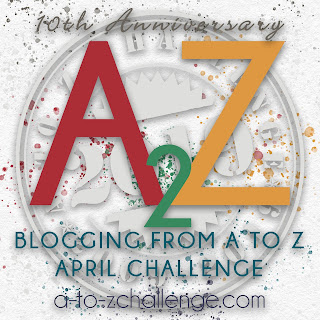The internet abounds with resources for novelists trying to craft query letters, the introductory communications emailed (typically) to agents. Query letters are meant to entice agents to read the novel, and ultimately, offer representation. If you're working on your very first query letter, or you've been querying a novel you believe in and haven't received many requests for pages, here's a quick 'cheat sheet' for making sure you've got all the information you need.
First, you can't go wrong with a simple, three-paragraph query. The query should run between 200-400 words - any longer and it starts reading like a synopsis, which is not what an agent wants to see in your initial communication about your book.
Second, many people disagree about the correct order of paragraphs in a query letter. Always follow any agent submission guidelines, but for a general query, the order really doesn't matter - you can put the housekeeping information first and then lead into the story, or vice versa. I always start with the story, because that's the most likely aspect of a query to hook an agent, and put the housekeeping info at the end.
Third, always address the query to the specific agent you're querying. If you're querying John Smith, starting your email with 'Dear Mr. Smith' is perfect. If you're querying Randy Smith, and you're not sure whether Randy is male or female, starting the email with 'Dear Randy' works fine.
Fourth, always include your full name and contact information (including phone number) at the end of the email. You can also include your website (if it's specific to your writing endeavors), Twitter handle, etc., but those are optional at the query stage.
Fifth, do not give away the ending! A query is meant to entice the agent to read more, as opposed to a synopsis, which covers the entire plot.
Sixth, don't name more than two or three characters. If your novel has dual narratives, it's fine to point that out in the housekeeping paragraph, and center the query around one of the characters. You can also have one paragraph for the first character and a second paragraph for the second character, but make sure they are intersecting in a way that makes sense (hero/villain, the two romantic leads, etc.).
Seventh, always use third-person present tense, regardless of how your novel is written.
Eighth, if you intend your book to be the first in a series, the best way to say that is in the housekeeping paragraph, with a sentence like 'This novel stands alone, but is intended to be the first book in a series.'
Nine, be specific! It's not particularly enticing to say that your main character must unearth a dark secret or the consequences will be dire. It's much more enticing to say something like, 'Harry must find and destroy the Sorcerer's Stone, or else Voldemort will resume his corporeal body and become an unstoppable evil wizard again.'
Tenth, make sure you can answer all the following questions about your novel (which I'll also answer, using Harry Potter and the Sorcerer's Stone as an example). These answers will give you an outline for drafting your query:
List of Questions for Paragraph 1
What is your main character's full name?
Harry Potter
How old is he/she? (if you're writing for children, you need to specify the age. If you're writing for adults, you likely don't need the age unless it's significant to the plot).
Harry is 10
Where does he she live, at least at the start of the book?
Number 4, Privet Drive, Surrey, England
What is your main character's 'normal state' at the beginning of the book?
Harry lives with his aunt, uncle, and cousin and he's treated like a servant
What is the 'inciting incident' that propels the main character, and the plot, into action?
Harry receives his Hogwarts letter
How does your main character react to the inciting incident?
Harry goes to Hogwarts and begins his education
List of Questions for Paragraph 2
What is your main character's goal?
Harry wants to find the Sorcerer's Stone before Voldemort, the most evil wizard ever
What does your main character do to achieve that goal?
Harry and his friends begin researching the Stone and trying to track it down.
What stands in the way of your main character's achieving that goal?
No one believes Harry, he's injured at a Quidditch match, etc.
What are the stakes (in other words, what happens if the main character can't achieve the goal)?
If Harry can't find the Stone, Voldemort will come back to his corporeal form and regain power.
List of Questions for Paragraph 3 (Housekeeping)
What is your title?
Harry Potter and the Sorcerer's Stone
What is your word count? (round up to the nearest 1000)
77,000
What is your age group?
Middle grade
What is your genre?
Fantasy
- Optional - What two or three books would yours be compared to?
- Optional - Why did you choose to query this agent?
- Optional - What life experiences and/or writing credentials qualify you to write this book?
Additional Resources
Agent Janet Reid's
QueryShark blog
Evil Editor's query critique blog
Miss Snark's query critique (archived blog)












